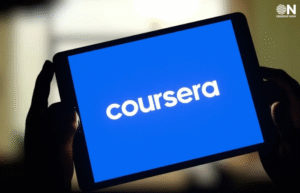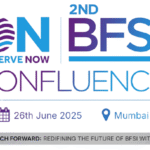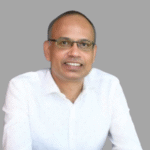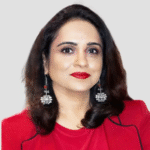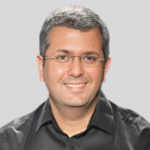ObserveNow’s 8th Education Leaders Conclave & Award in Mumbai Sailing through Transformative Learning, Data Analytics & Financial Literacy

ObserveNow Media successfully hosted the 8th Education Leaders Conclave & Awards in Mumbai in Mumbai on 25th October 2024, bringing together leading figures in education, government, and industry.
The event, with over 250 delegates, 100+ speakers, and 30+ partners, explored the theme “Transformative Learning: Innovations Shaping Higher Education.” It aimed to highlight key innovations, emerging technologies, and strategies that are shaping the future of higher education.
The success of the 8th Education Leaders Conclave & Awards was made possible by the incredible support of its partners. The event was presented by NxtWave as the presenting partner, with LEO1 powering the event. Key partners also included Your Dost as Wellness Partner, Logicloop Edulatte as Digital Partner, Avanse Financial Services as Education Finance Partner, and StockGro as Financial Literacy Partner. Arivoo supported as the ERP Partner, while Codetantra contributed as Coding and Assessment Partner. The Wadhwani Foundation and Go Seekho played significant roles as Associate Partners, with UEM and Rahul Education supporting the event as Supporting Partners. Additionally, Pleasin Strides contributed as the CSR Partner. Their collaborative efforts helped bring together diverse voices and perspectives to address the future of higher education, making the conclave an impactful event for all attendees.
Jeet Sharma, CEO & Co-founder, ObserveNow Media highlighted “In an era where digital transformation is paramount, our goal is clear: to ensure education is accessible, inclusive, and centred around developing critical and creative thinkers who will drive tomorrow’s innovations.”
Taniya Tikoo, Co-founder & Editor in Chief, ObserveNow Media asserted “Empowering students through digital access and personalized learning is essential for shaping a future-ready education system that transcends traditional boundaries.”
The conclave was kicked off by Riya Adlakha, Assistant Editor at ObserveNow Media, who delivered a powerful welcome speech. Riya emphasized the ongoing transformations in the education sector and the importance of innovative thinking. “Mumbai is a true hub of knowledge and progress, and this event reflects the forward-thinking strategies that are critical for the future of higher education,” she said. Her address set the tone for a day focused on exploring how transformative learning and innovative practices can reshape the educational landscape in India and globally.
The Digital Transformation of Higher Education
The first keynote address of the day was delivered by Dr. Shankar S. Mantha, Chancellor of Ramdeobaba University (RBU), Nagpur, and former Chairman of AICTE. He spoke about the ongoing evolution of India’s education system and the urgent need to adapt to the changing demands of higher education.
Dr. Mantha focused on the role of digital transformation in increasing the Gross Enrollment Ratio (GER), which currently stands at just 27%. He explained that digital education could open the door to higher education for the remaining 73% of students who are currently excluded. “Universities were never meant to guarantee jobs; they were meant to develop analytical, cognitive, and domain expertise skills,” Dr. Mantha said. He also pointed out that digital universities are crucial for increasing GER and ensuring that more students have access to quality education, regardless of their geographical or economic backgrounds.
The first panel themed “EdTech Innovations – Role of Emerging Tech like AI in Harnessing Transformative Learning in Higher Education” moderated by Rahul Attuluri, Co-founder & CEO of NxtWave, focused on how emerging technologies like AI are transforming higher education. Dr. Shankar S. Mantha emphasized that AI offers huge potential in creating personalized learning experiences for students by identifying their learning pace and tailoring content accordingly. However, he cautioned universities to be mindful of how AI is used, stressing that it should enhance creativity and analytical thinking, not replace it. Dr. Akhil Shahani, Managing Director of The Shahani Group, agreed, stating that teachers must also embrace AI to effectively teach students and provide meaningful guidance. Bhupesh Daheria, Managing Trustee of Aegis School of Data Science, described AI tools like ChatGPT as democratizing knowledge by offering students reliable and accessible resources. Dr. Simon Mak, Founding Vice Chancellor of Universal AI University, highlighted that AI could drastically reduce the time required to complete traditional degree programs, allowing students to pursue advanced studies such as PhDs earlier in their careers.
The second panel, moderated by Rohit Gajbhiye, CEO of LEO1 themed “Education Credits – A New Way for Educators to Reimburse Fees by Incentivizing Timely Payments”
explored the concept of education credits—a new system designed to incentivize students by rewarding timely fee payments and academic performance. Dr. Vandana Mishra Chaturvedi, In-charge Vice Chancellor of DY Patil University, discussed how education credits can serve as rewards that students can use to further their education, breaking the traditional model of financial transactions in education. Dr. Dharmesh J. Shah, Vice Chancellor of Indrashil University, emphasized the importance of incentivizing class participation and academic engagement to encourage consistent attendance. Dr. Prashant Gundawar, Director of Sasmira Group Institutes, highlighted the regional disparities in education and the need for financial literacy to be addressed at the grassroots level to ensure equitable access. Himanshu Kulkarni, Assistant President at LEO1, remarked that in India, students often have higher expectations than the value they pay for, but platforms like LEO1 are committed to providing added value to students. Smt. Krishna Tiwari, Joint Secretary of Rahul Education, pointed out that while students often prefer cash rewards, more practical incentives, such as canteen credits or transport vouchers, might be a more effective approach.
The third panel themed “Inclusive & Personalized Education – How Online Platforms Enable Personalized Learning and Accessible Financing?” moderated by Dr. Anamika Singh, Director of Pune Institute of Business Management, addressed the role of online platforms and AI in creating more inclusive and personalized education experiences. Maj. Gen. B.D. Wadhwa, Pro Chancellor of IILM University, stressed the importance of creating equal opportunities for all students, while recognizing the psychological and emotional barriers that might prevent some from succeeding. He highlighted the need for specialized faculty and support systems to address these challenges. Dr. Sandeep Chatterjee, Pro Vice Chancellor of D.Y. Patil International University, noted that the National Education Policy (NEP) and AI are helping redesign courses to be more flexible, creative, and student-centered. Dr. Pradeep Kumar Sharma, Registrar & Provost of University of Engineering & Management, emphasized how COVID-19 accelerated the shift to hybrid education, which now offers greater engagement opportunities. Dr. Swati Lodha, Director of MET Institute of Management, highlighted that questioning the role of AI is no longer relevant, as the focus should be on how it can be positively adopted. Dr. Chandrani Singh, Director of Sinhgad Institute of Management, cautioned that too much personalization could stifle creativity, and suggested that AI tools should be used to enhance—not replace—the human element in teaching.
The final panel on “Redefining Student Success – Combining EdTech, Data Analytics, and Financial Literacy for Holistic Student Success” moderated by Dr. Svetlana Tatuskar, Director of Kohinoor Business School, discussed how EdTech, data analytics, and financial literacy contribute to holistic student success. Prof. (Dr.) Deepa Dixit, Director of SIES School of Business Studies, emphasized that while technology continues to evolve, there is a need to focus on the skills and values that human beings bring to education. Dr. Mayur Dubey, Director of Rahul Education, reflected on how India’s entrepreneurial ecosystem has evolved, noting that the support now available for young innovators is reminiscent of the US startup culture. Dr. Anirrban Ghosh, Associate Dean at Jagdish Sheth School of Management, emphasized that social responsibility and personality development should be key components of student success. Dr. Samrat Ray, Dean at International Institute of Management Studies, spoke about the potential of predictive analytics in aligning educational programs with real-world industry needs. Dr. Smitha Yadav, Dean at NICMAR University, highlighted the practical benefits of adopting technology to manage resources, improve safety, and enhance the overall quality of education. Varun S. Arora, Chief Collaboration Officer at StockGro, concluded by stressing the importance of financial literacy as a life skill, essential for managing personal finances and understanding risks.
The conclave concluded with a Valedictory Session delivered by Shri Shrikant Sinha, CEO of Telangana Academy for Skill and Knowledge. Shri Sinha emphasized the importance of logical thinking and domain knowledge for students to succeed in an AI-driven future. “AI is a tool to assist, but students must have the foundational knowledge and skills to leverage it for success,” he stated, reinforcing the message that while AI can help, the key to future success lies in students’ ability to think critically and creatively.
The event honoured leading figures and organizations in higher education for their exceptional contributions across various domains, below are a few of the award winners:
- Dr. Dharmesh J. Shah, Vice Chancellor of Indrashil University, Gujarat, was recognized with the Iconic Leadership for Higher Education 2024 award.
- Dr. Samrat Ray, Dean (Research and International Relation), International Institute of Management Studies, Pune, received the Outstanding Research Scholar of the Year 2024 award.
- Smt. Krishna Tiwari, Joint Secretary, Rahul Education was acknowledged for her Outstanding Leadership in Higher Education,.
- Dr. Akhil Shahani, MD, The Shahani Group earned the Entrepreneurship Award in Higher Education 2024.
- Dr. Simon Mak, Founding Vice Chancellor of Universal AI University, Mumbai, was awarded the Emerging Leader in Higher Education 2024
- Dr. Vandana Mishra Chaturvedi, VC, DY Patil University, Navi Mumbai, was recognized as the Outstanding Vice Chancellor of the Year 2024.
- University of Engineering and Management (UEM) Jaipur – IEM UEM Group was awarded as Outstanding University in Digital Innovation, Technology, and Best Practices 2024
- Shree L. R. Tiwari Degree College, Thane secure the award for eing the Outstanding Institute in Innovative Teaching and Learning Practices 2024
- Gandhinagar University, Gujarat secured the award for Most Promising University in Research & Development 2024
- D. Y. Patil International University, Pune seized the award for being tye Most Promising Engineering University in India 2024
- LEO1 Awarded as Pioneering Fee Collection & Rewards Ecosystem 2024
- StockGro Awarded as Best Financial Literacy Platform
- Wadhwani Foundation Awarded as Outstanding Digital Education Platform Provider of the Year 2024
- Imarticus Learning Awarded as Outstanding Education Company for Data Science and Analytics in 2024
- Arivoo – Powered by Adamas Tech Consulting Awarded as Best ERP Solution Provider in Higher Education
- Avanse Financial Services Awarded as Most Promising Educational Institution Financing Company of the Year
- CodeTantra Awarded as Outstanding Tech Solution Provider for Higher Education 2024
- Goseeko Awarded as Outstanding Digital Education Provider of the Year 2024
The 8th Education Leaders Conclave 2023 provided a valuable platform for educators, innovators, and policymakers to discuss the future of higher education. Through dynamic panel discussions and keynote speeches, the event showcased how emerging technologies, innovative practices, and strategic collaboration are shaping the landscape of education. The conclave emphasized the need for a student-centric, inclusive, and flexible educational system that prepares future leaders for the challenges and opportunities of tomorrow.





